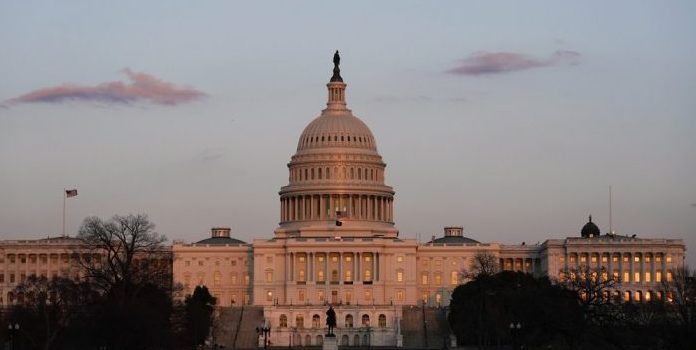(By Casey Harper, The Center Square) The federal government is borrowing an average of $5.3 billion per day this fiscal year, the U.S. Congressional Budget Office estimated Tuesday. The new estimate come just days after a top international creditor downgraded the U.S. credit rating.
“The federal budget deficit was $1.6 trillion in the first 10 months of fiscal year 2023, the Congressional Budget Office estimates – more than twice the shortfall recorded during the same period last year,” CBO said. “Revenues were 10 percent lower and outlays were 10 percent higher from October through July than they were during the same period in fiscal year 2022.”
Fitch, considered one of the top three rating agencies in the world, raised concerns about the U.S. debt-to-GDP ratio in its announcement of the credit downgrade from a perfect AAA to AA+, the next tier down.
CBO projects that the U.S. debt will be nearly twice the size of the U.S. economy in 30 years.
“The deficit this year and next year are on track to be 50 percent larger than before the pandemic, despite the fact that the pandemic is over and the economy seems to be growing at a steady clip,” said Maya MacGuineas, president of the Committee for a Responsible Federal Budget.
“No matter what one thinks of Fitch’s recent downgrade, it is clear that they are right that there are plenty of things to worry about when it comes to the government’s finances.”
As The Center Square previously reported, CBO data show that interest payments on the national debt are on pace to become the largest expense for the U.S. government.
In its downgrade announcement, Fitch pointed to the soaring spending over the last decade and Congress’ repeated near-shutdown events as well as its failure to address major financial challenges such as entitlement spending.
“In Fitch’s view, there has been a steady deterioration in standards of governance over the last 20 years, including on fiscal and debt matters, notwithstanding the June bipartisan agreement to suspend the debt limit until January 2025,” Fitch said. “The repeated debt-limit political standoffs and last-minute resolutions have eroded confidence in fiscal management. In addition, the government lacks a medium-term fiscal framework, unlike most peers, and has a complex budgeting process.”
Experts have been raising the alarm about the skyrocketing federal debt for years.
The CRFB has released reports showing that the trust funds for Social Security, Medicare and highways face insolvency within the next decade.
For now, though, it seems little change is on the horizon.
“How do we begin to tackle rising debt and deficits, growing interest costs, and Social Security and Medicare approaching insolvency?” MacGuineas said. “It won’t be easy, but a bipartisan fiscal commission could provide the right opportunity to get those conversations started. With everything on the table – including all parts of the budget and tax code – our leaders should show the American people that they are capable of making the tough decisions to put our fiscal house back in order.”

